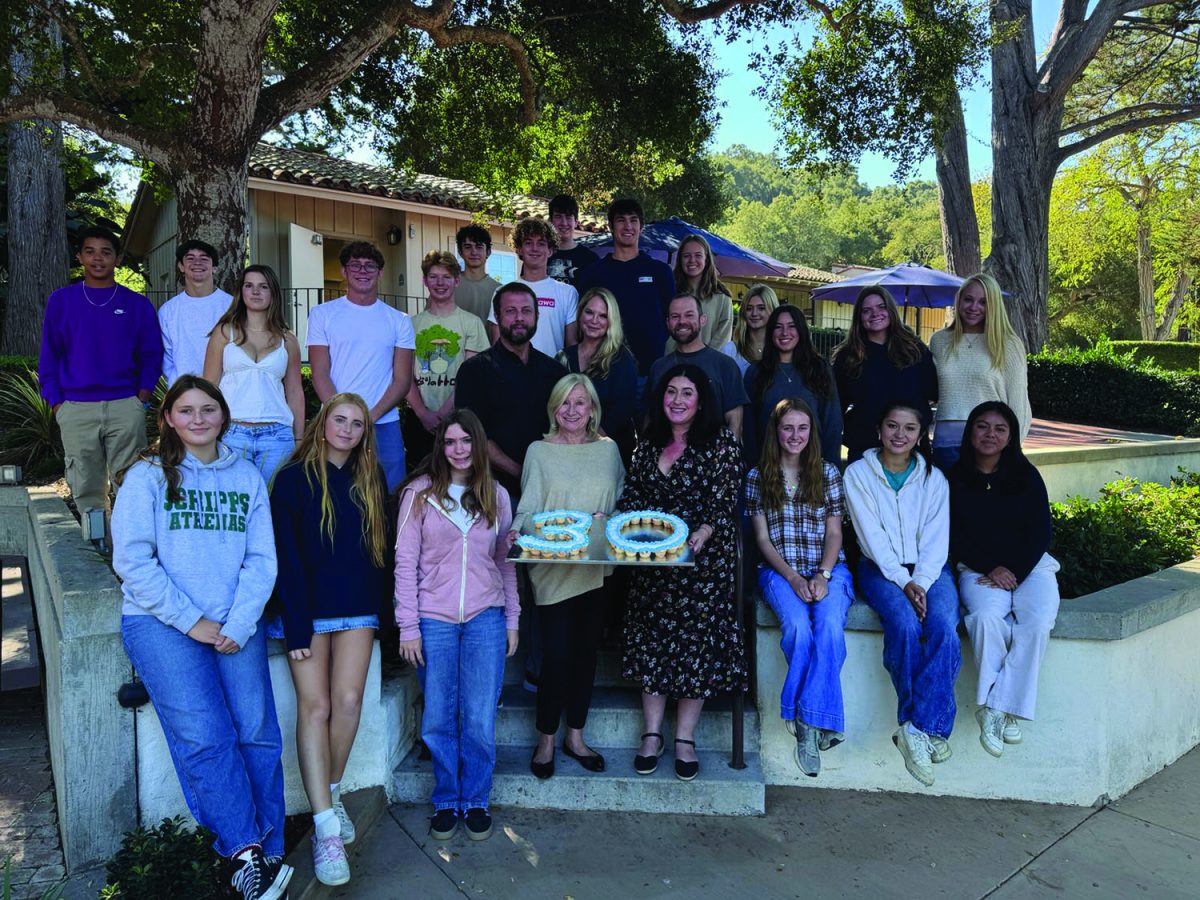Space Tourism Heats Up
While many space companies have been butting heads, a new type of space exploration has emerged. The futuristic idea of space tourism is causing companies like Blue Origin, Virgin Galactic, and SpaceX to race to become the leaders in public space transportation.
The race to become the leaders in public space transportation.
November 17, 2021
Space tourism is something that used to be seen as a cool getaway in a science-fiction story rather than reality, but as a new age in science is rising, it is causing many changes in that opinion.
Space exploration is now a business as ultra-wealthy billionaires compete to capitalize on the unique opportunity of commercializing space and expanding upon the meaning of “a once in a lifetime opportunity.”
SpaceX’s first-ever crewed orbital mission (Inspiration 4) without professional astronauts has paved a new road for the future of private spaceflight.
With a successful splash down landing in Florida, Inspiration 4’s first three-day trip around Earth that launched on Sept. 16, caused an increase of interest in space exploration.
With that, many new companies and initiatives are hoping to jump on the trend soon.
As space tourism starts to develop and opens more doors to more people, it will allow the public to understand the future of space exploration better.
Now, with their objectives, Jeff Bezos’ Blue Origin, Richard Branson’s Virgin Galactic, and Elon Musk’s SpaceX are advancing in space mechanics and space tourism and moving towards the goal of including space travel into regular commutes, where typical citizens have the opportunity to travel to space as a vacation destination at speeds never seen before.
With space tourism, the prospects of traveling to space are becoming more apparent to humanity. We continue to be enthralled by the idea that traveling to space opens a platform of ideas.
Space travel shows the capabilities of humankind and how much more of the universe is left undiscovered. As space travel becomes more developed, the cost of going to space will decrease, including ticket prices.
With 8,000 people currently holding a reserved ticket aboard the Virgin Galactic flight, Richard Branson had to put a cap limitation. With any new technology or recreational experience, it is always the most expensive when it is first released.
Just pondering the possibility of a future with Americans vacationing in space allows people to connect to space, opening a likelihood for us in the foreseeable future. How quickly it develops, however, is anyone’s guess.
One ticket from Blue Origin sold for $28 million makes it clear that the average person is more likely to win the lottery before getting chosen by NASA to become an elite astronaut, not to mention the deep pockets needed for this expensive thrill ride for a spot aboard Virgin Galactic’s six-passenger Unity spacecraft, which is currently being sold for around $450,000 a piece.
The current prices to access space are astronomical: the only people who could ever afford it at the moment are a small percentage of the ultra-wealthy, making its hefty price tag its primary criticism against investing in space travel.
Another complaint is that funds for space tourism could be used to solve issues here on Earth, including climate change.
With so many eyes on space travel, many believe that the costs for space tourism are a distraction from more critical societal problems.
Besides most of the concerns revolving around funding, another criticism of space tourism is its lasting environmental impact.
The most common pollution from spacecraft is caused by black carbon from their engines and their rocket fuel.
Based on The Guardian, data came back revealing one rocket launch emits up to 300 tons of carbon dioxide into the atmosphere due to their fuel.
Activists continuously accuse companies like Virgin Galactic of downplaying and disregarding the environmental risks of space travel.
While big companies like Virgin Galactic are promising, they plan to invest in a more environmentally friendly fuel in the future to create promising safe guards..
“Because right now we have many countries in the world who are traveling to space right now, I think that it is a global responsibility on how we determine the safeguards and how we can better protect our planet,” said biology teacher Penny Pagels.
Blue Origin engines depend on liquid oxygen and liquid hydrogen, which create water vapor, but people denounce that it takes electricity to produce the fuel.
The use of fossil fuels in power plants burns coal, which generates steam to operate turbines
that helps produce energy through wind turbines resulting in even more pollution.
According to Phys.org, Inspiration4, launched by SpaceX, used an F9 rocket, which amounted to 395 trans-Atlantic flights worth carbon emissions.
Since space tourism is such a new concept and used for recreational and scientific purposes, emissions are still negligible compared to commercial plane flights.
Still, activists worry about the effects space travel could have on global warming.
“I have a lot of concerns for our planet and I think we should be focusing on the future of Earth, before we continue to spend billions of dollars on space exploration, especially on space tourism,” Pagels said.
According to the Wall Street Journal, Virgin Galactic’s aims to launch at least 400 flights a year by the end of the decade.
With that many flights being launched, many other doors will open in the next steps of exploration, whether it is discovering valuable minerals to new ways of colonization.
The benefits of space exploration, which people are vying towards, make this a more breathtaking experience for the general audience.
When you pass the boundary between Earth and space, travelers can catch a rare glimpse, allowing them to transform their views on Earth.
With such uncharted territory innovations, and ideas could help originate new advancements from in-depth space exploration.
As space tourism catches flight, already 600 people have confirmed themselves for a Virgin Galactic flight in the future, opening many job opportunities in the burgeoning space travel market.
The world focusing on interplanetary travels and plans for colonization gives a good idea that space is explorable by the naked eye. Americans aren’t the only people competing for the groundbreaking discoveries made by space travel; other countries, from China to Russia, are also founding their projects.
With the market expanding to be projected at $3 billion, countless investors plan to jump into the new market by the end of 2030.
The China Academy of Sciences (CAS) recently mentioned developing rockets for commercial satellite purposes, soon to be tested next year.
At the same time, Russia is reportedly filming a movie on the International Space Station this year which launched from Kazakhstan this past month, showcasing the various uses of space travel.
Even with so many opinions and speculations regarding space tourism, there is no doubt that it will become a huge step in human history.
The thought of vacationing in space with a smoothie in hand and camera around the neck seems so distant at least for a great majority but not for a certain crowd.
Yet, as technology drastically continues advancing, billionaires seemingly make this joy ride seem closer in sight with many test launches already taken.
With many attempts of opening the cosmos to the huge masses, normalizing space travel is in the foreseeable horizon as tickets start selling at alarming rates as a gradual interest for it’s huge potential in recreational purposes. A lot of criticism and praise hover over this subject, but can the pros outweigh the cons for space tourism?



































